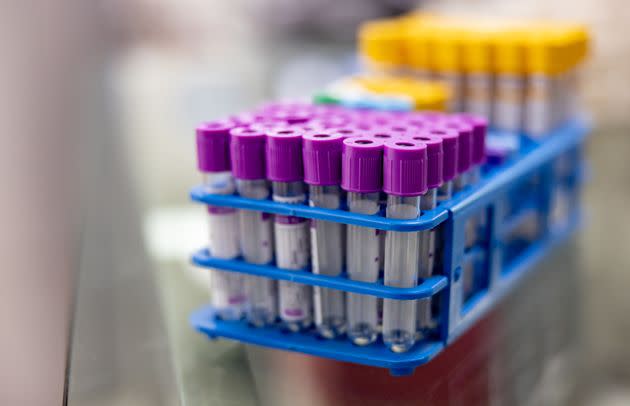Long COVID Study Suggests Immune System Response At Root Of Persistent Symptoms
Scientists may be on the path to understanding long COVID after identifying a change in blood proteins found in people with extended symptoms from the virus.
A study published by the journal Science on Thursday found that patients experiencing long COVID symptoms had proteins that indicated part of their immune systems remained active after an infection.
According to experts, this discovery could lead to diagnostic tests and treatment for long COVID, which has left people with persistent fatigue, brain fog, chest pain, stomach issues, and a broad range of other symptoms.
The study focused on 113 COVID patients and 39 healthy controls. After six months, 40 patients had developed characteristics of long COVID.
Blood samples for those patients contained a group of proteins which showed the body’s complement system, a part of the immune system, continued to be on high alert long after the COVID virus.
As the complement system remains active without COVID to fight, it “starts damaging healthy cells,” according to Dr. Onur Boyman, a professor of immunology at the University of Zurich in Switzerland and one of the study’s authors.

Blood samples from long COVID patients revealed a common group of proteins which indicated a heightened immune system response.
According to experts, any resulting tissue damage and microclots in the blood could reduce the level of oxygen and nutrients delivered to different organs, leading to long COVID symptoms.
“If your brain, for example, isn’t getting enough oxygen, obviously there will be a lot of issues with memory, brain fog and fatigue,” Akiko Iwasaki, a professor of immunobiology, and molecular, cellular and developmental biology at the Yale School of Medicine, told NBC News.
Dr. Monica Verduzco-Gutierrez, chair of rehabilitation medicine at the University of Texas Health Science Center at San Antonio and head of its long COVID clinic, told NBC News that the study was a huge advance in the study of the virus.
“Understanding the mechanisms of long COVID is how we’re going to figure out treatments,” she said.
Around 14% of adults report experiencing long COVID, according to data from the U.S. Census Bureau’s Household Pulse Survey.
Read the full study at Science here.

